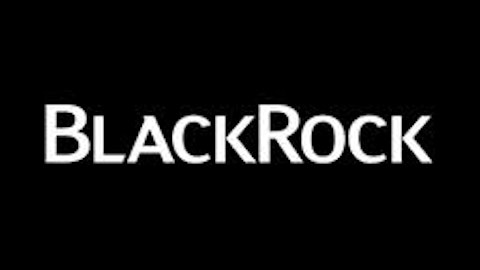In the Q1 2013 earnings, the company reported a 9% increase in its revenue. It also saw a 10% rise in its net income over last year. This increased the EPS to $3.65 per share, up from $3.14 per share a year earlier, beating the consensus estimate by $0.07. The company also reported strong operating margins of 42.6%. Its iShares ETF business saw net long-term inflows of $25.6 billion during the quarter. This unit is gradually becoming one of the major revenue drivers for the company.
Recent quarterly earnings results suggested that investors are now willing to invest in riskier assets. The company reported an AUM increase of $33.7 billion in equity offerings out of the total net inflows of $39.4 billion into long term funds. This was the first strong equity performance since the global financial crisis in 2008. The inflows in iShares ETF also shifted from emerging market products into U.S. broad market and large cap equities. This reflects an increasing confidence in the economy among investors. Fear of an interest rate rise led to outflows of $2.6 billion in the company’s bond funds. All these factors indicate that investors are expecting a strong market rally this year. This will lead to an increase in the investments by individuals and institutions, further contributing to the company’s revenue.
The company has increased its dividends at a rapid rate, even during the subprime crisis. It pays out 43% of its earnings as dividends. It increased from a quarterly dividend of $0.78 in 2008 to $1.50 in 2012. Recently, it has further increased it by 12% to $1.68. The current dividend yield is 2.7%, which is expected to increase further. The company has also been buying back shares, giving investors even higher returns.
BlackRock has been acquiring firms in order to expand. Its acquisition of Barclays’s Global Investors in 2009 added iShares in its product portfolio. This helped it reach a larger number of investors. This also added around $1.8 trillion of AUM. It acquired Claymore’s Canadian ETFs and rebranded it under iShares. This year it has announced the acquisition of Credit Suisse’s ETF as well.
These acquisitions have changed the company’s AUM mix from predominantly active fixed income and equity in 2007 to a diversified product range.
Bullish on BlackRock
BlackRock, Inc. (NYSE:BLK) is currently trading at a trailing P/E ratio of around 17.52, which is at a slight premium compared to its industry average.
State Street Corporation (NYSE:STT) is currently trading at a trailing P/E ratio of 13.12, which is slightly lower than the industry average. Its P/S is also at a discount to industry average. UBS’s forward P/E ratio is also at a little discount to the industry average, while its P/S ratio is almost equal to the industry average.
While BlackRock shares are currently trading at a premium to the industry, this is justified, given the company’s anticipated earnings growth. The consensus EPS estimate for BlackRock, Inc. (NYSE:BLK) for the second quarter is $3.84. For the third quarter, the company expected to report EPS of $4.02, and for the fourth quarter, the EPS is expected to come in at $4.49 in the current fiscal year. Over the next five years, EPS is expected to grow at more than 13%. On the other hand, earnings growth forecast for both, State Street Corporation (NYSE:STT) and UBS AG (NYSE:UBS), for the next five years is moderate.
There are a number of factors that will drive the company’s growth in the next three to five years. Some of these factors are: growing assets under management, high profit margins, growing iShare segment, Credit Suisse’s ETF’s acquisition, strong financial performance, and improving market sentiment. Therefore, if you are someone who likes to invest and hold the stock for long periods, BlackRock, Inc. (NYSE:BLK) may be the investment you are looking for.
The article Invest In This Financial Stock For Long Term Returns originally appeared on Fool.com.
Copyright © 1995 – 2013 The Motley Fool, LLC. All rights reserved. The Motley Fool has a disclosure policy.

